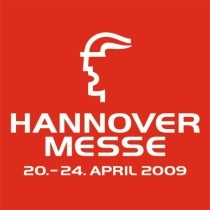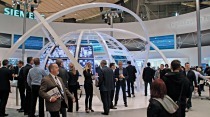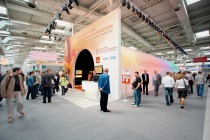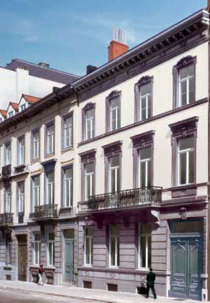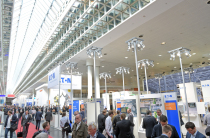Integration solutions to provide basis for increased reliance on renewable forms of energy
Hannover, Germany. The closing message of the World Energy Dialogue (WED), staged at Hannover Messe (the Hannover Fair) on 20 and 21 April 2010, could not have been clearer: A high degree of interconnection is key to achieving sustainable energy supplies for today's rapidly growing urban centers. Only by means of integrated power grids across regional and national borders can long-term efficiency be attained and future challenges be adequately addressed.
Under the leadership of WED chairman Dr. Klaus Töpfer, scientists, politicians and industry representatives and an audience of around 500 participants addressed the key issue for future energy supply: the creation of energy supply systems which will allow for a massive increase in renewable energy generation and a dramatic jump in efficiency.
The official patron of WED 2010, Germany's Federal Minister of Economic Affairs, Rainer Brüderle, noted that one of the priority goals of the German government was to formulate a comprehensive energy policy extending beyond the year 2050. The objective of this concept is to create an intelligent energy supply system for increased levels of integration through technical innovation.
Rapid deployment of available technology
Dr. Werner Schnappauf, Executive Director of the Federation of German Industries (BDI) emphasized that the consistent deployment of energy-efficient products which are already available today could already cut CO2 emissions by around 40 percent, but that making the "leap into the technological New World" calls for prompt support if implementation is to be achieved in time. He urged policymakers to create favorable conditions for deploying already available technology, while remaining open to new advances.
Optimizing energy consumption: a matter of systems
As the discussion revealed, it is not enough to approach the optimization of energy consumption merely in terms of individual properties or facilities. The audience learned that around half of the world's population currently lives in cities, and experts expect this figure to rise to 60 percent by the year 2020. This highlights the importance of engineering more efficient structures in urban spaces, not only in terms of how these structures are supplied with energy. Transport issues were also identified as rising in significance: For example, even an energy-optimized building can trigger an elevated degree of energy consumption if located in the wrong place, noted Dr. Hermann Knoflacher from Vienna Technical University.
Climate protection beyond national borders
The Desertec project illustrated the crucial importance of pan-regional and intercontinental collaboration for the climate-friendly generation and optimum use of energy. It was pointed out that the idea of generating solar energy at a location near the equator for transmission to Europe hinges on smooth collaboration between European and African (or North African) politicians and the use of highly efficient technologies.
Paul van Son, head of the Desertec initiative, highlighted the importance of giving sufficient consideration to local components of the scheme as the basis for securing acceptance of the project in Africa. He suggested that this renewable energy project could first be used to meet electricity demands in North Africa or the Middle East, and later to export surplus power to Europe. Estimates indicate that around 15 percent of European demand could be met in this way, he said.
Other important issues included knowledge transfer and the creation of technology competence centers in partnership with universities in North African states. The key requirement for actual implementation of the current as of the year 2012 was described as finding a feasible way to convey this special form of energy to where it is needed, since transmission across enormous distances to Central Europe would require low-loss power lines using high-tension direct current (HTDC) transmission technology, for example.
Stefan Kohler, CEO of the German Energy Agency (dena), addressed the issue of efficient energy transport and the availability of storage facilities from a European perspective. In his lecture on "Challenges and requirements for viable grid systems for the future", he argued that the predicted increase in fluctuating generation capacity in the wind power and photovoltaic sectors would lead to installed capacity of around 80,000 MW as early as 2020. An international approach is the only way of efficiently handling this power produced at various central and decentral locations, he said. He also pointed out it would be necessary to create large-scale, pumped-storage systems for this power.
Italy on its way to becoming energy hub of Mediterranean region
In his lecture on the first days of the congress, Italy's Minister for Economic Development, Claudio Scajola, highlighted the importance of transmission grids, particularly in the international context. He described his country's plans to become a pivotal hub for energy exchange throughout the Mediterranean region, for both electricity and natural gas, with the involvement of Africa and the Middle East. He referred to the Desertec project as a catalyst for the capital investment needed for related restructuring.
Deutsche Messe
Messegelände I 30521 Hannover IGermany
T +49 (0) 51 18 90 I F +49 (0) 51 18 93 26 26
info@messe.de I www.messe.de

